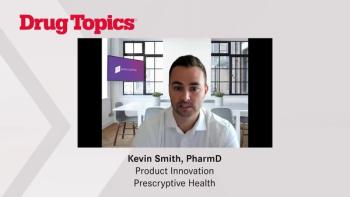
Standards unveiled for personal health records
While the nation waits for the electronic health record (EHR) to become an everyday reality, the Department of Health & Human Services (HHS) is pushing for widespread use of personal health records (PHRs), which are controlled by the consumer and include a medication history. HHS Secretary Mike Leavitt recently accepted the first set of interoperability standards for PHR, hammered out over many months by the Health Information Technology Standards Panel (HITSP).
A public/private group under contract from HHS to "harmonize" many standards for health data exchange, HITSP chooses from among a number of well-established standards. The panel, part of the structure surrounding the Office of the National Coordinator for Health Information Technology (ONC), is closely related to the certification of EHRs. The PHR standards designated include the "Federal Medication Terminologies" and the National Council for Prescription Drug Programs (NCPDP) SCRIPT Standard Implementation Guide Version 8.1.
Despite different definitions for PHRs and different versions available from commercial vendors and others, the new standards see consumers creating an account to host their registration information and medication history, then authorizing healthcare providers, pharmacists, and payers to access that information. A recent report from an HHS advisory committee said PHR data "may be stored in a variety of locations, including an Internet-accessible database, a provider's electronic health record (EHR), the consumer/patient's home computer, a portable device such as a smart card or thumb drive, or a privately maintained database."
The standards are designed to enable many functions, including authenticating consumers, designated caregivers, and healthcare professionals; querying other organizations for data and matching to the consumer; accepting "batch" data from other organizations and matching to the appropriate consumers; and accessing, viewing, and sharing registration summaries and medication histories.
Lynne Gilbertson, director of standards development for NCPDP, said that while the question of how these standards will be implemented in the industry is still playing out, there is a lot of activity on PHRs. Pharmacists may have contact with PHRs, she said, when they are asked to provide medication histories to them, when consumers tell pharmacists their medication history is on-line, or perhaps when consulting pharmacists use them as a tool for their patients. Gilbertson also noted that pharmacists may benefit from physicians accessing PHRs; the more doctors know about a patient's history and medications, the more likely pharmacists will get "clean scripts" that don't require callbacks.
John Halamka, M.D., HITSP chair, said, "The HITSP standards empower consumers to be stewards of their own healthcare information. They can gather medication data from hospitals, doctors' offices, and pharmacies as well as add their own data, such as over-the-counter medications." PHRs, he continued, "can be a data source to pharmacists, enabling them to do one last drug-drug interaction safety check before releasing prescriptions to patients." He also noted that the standards "will enable a patient to manage demographic, allergic, and healthcare preference/condition information such as pregnancy status and advance directive information that pharmacists will find useful to ensure medication safety and patient-centric care."
The PHR standards were one part of the first set of standards ever designated by HITSP, a moment Secretary Leavitt called extraordinarily important. The other designated standards are for sending EHR laboratory results to clinicians and for biosurveillance, defined as the "near-time, nationwide public health event monitoring to support early detection, situational awareness, and rapid response management across care delivery, public health, and other authorized government agencies."
Information about the standards process is available at
THE AUTHOR is a writer based in the Washington, D.C., area.
Newsletter
Pharmacy practice is always changing. Stay ahead of the curve with the Drug Topics newsletter and get the latest drug information, industry trends, and patient care tips.























